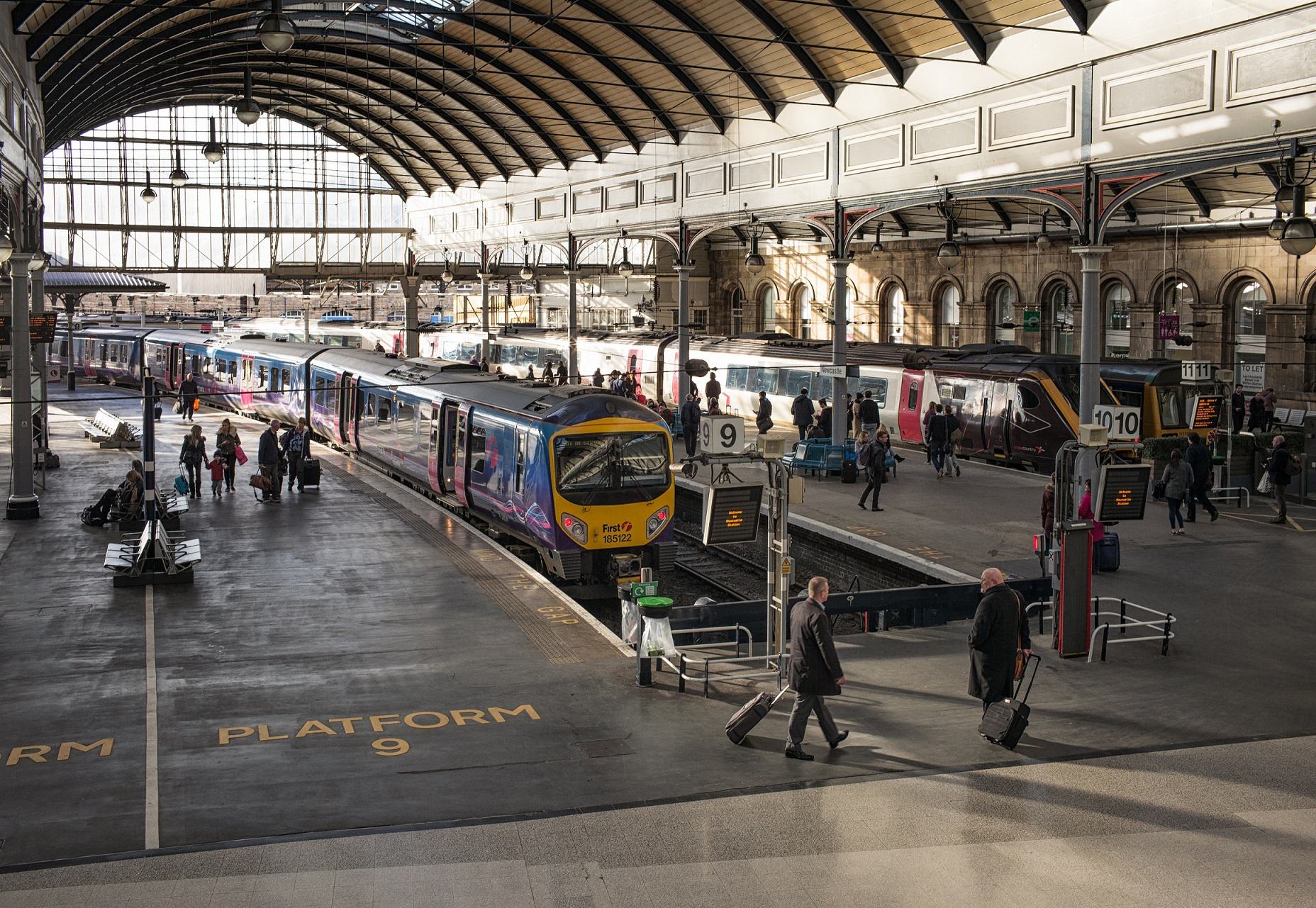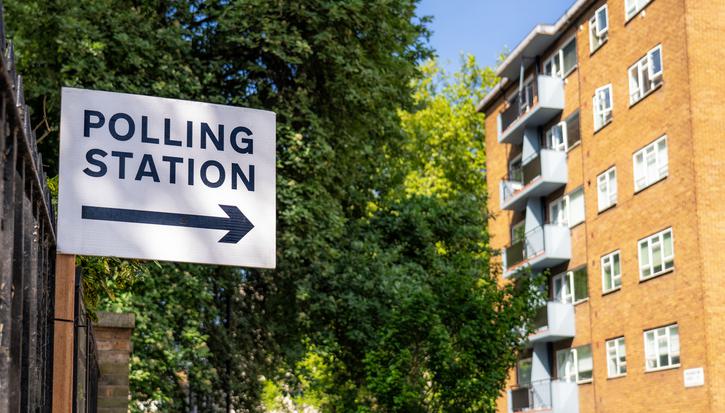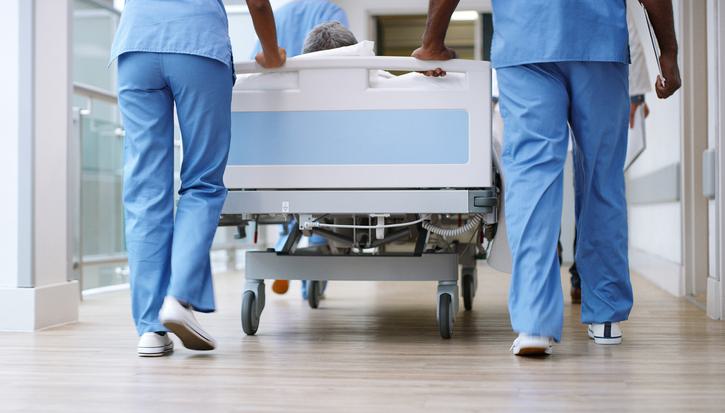The facts don’t lie: why Northern Conservatives should be concerned about the transport secretary’s accusations
The facts don’t lie: why Northern Conservatives should be concerned about the transport secretary’s accusationsArticle

Last week, the transport secretary arrived for another tour of Northern cities to "slay some myths" that he believed had emerged following his challenging summer visit. In his last outing he cancelled one rail electrification scheme and cast doubt on many others (shortly before giving the green light to London's Crossrail 2) prompting a major backlash during which nearly 87,000 people signed a petition in protest and Northern leaders hastily convened a Transport Summit to show their anger at government back-tracking.
Once again though, the latest visit didn't go down well. Far from a charm offensive, he turned the spotlight on Transport for the North to come up with some solid proposals and his myth-slaying mission took issue with IPPR North’s latest analysis of transport statistics.
Transport minister after transport minister has tried to defend the well-documented imbalance of public spending between London and Northern regions, but in what can only be seen as a David versus Goliath battle, the collective might of the Department for Transport, Her Majesty's Treasury and the Office for National Statistics remain unable to provide a shred of genuine evidence to counter IPPR North's claim that planned expenditure on transport infrastructure from public and public/private sources is more than four times per head higher in London than in the North.
Mr Grayling has suggested that our figures don't include local spending and has twice mentioned, by way of example, the Heysham-M6 link road as a case in point. Sadly for Mr Grayling, he is mistaken. Our most commonly cited analysis, based on the government's National Infrastructure and Construction Pipeline data, does include a spending category known as "Local Authority Majors" and the scheduled £21m Heysham-M6 link investment is included.
Even if you take the government's preferred "Country and regional public finances" data showing historical public spending on transport, local expenditure is included. This analysis shows a spending gap of £59 billion over the past decade between London and the North. If Mr Grayling continues to claim that if local expenditure was included per capita spending in the “north west” would be higher than in “the south east” then we would respectfully suggest he puts his calculations into the public domain as we have done, but not just for the north west and south east, also for London, Yorkshire and the North East too.
Our analysis has received the scrutiny of Full Fact and other independent commentators and we are quite prepared to meet with officials to compare calculations or for the disagreement to be referred to the UK Statistics Authority.
Mr Grayling is also wrong to describe IPPR North as a 'Labour-supporting' think tank. We are politically independent and evidence-based in our approach, we are considered highly transparent and, unlike many other think tanks, we publish details of all our funders on our website.
Beyond the statistics and the politics though, it is important to address the substance of the transport secretary’s latest announcements and the more significant comments he made about Transport for the North.
The official press notice heralded a £5 million investment in making the Transpennine route Britain's first intercity digital railway but it was downplayed in the speech when it became clear that this was a) just for a study; b) just 1.1% of a £450m fund; and c) the kind of technology used widely on the Tube, Thameslink and in most modern continental railway networks.
Business reaction was muted. There are £5m decisions being taken many times a day across the North and there is a growing sense that the Department of Transport seems out of touch about the scale of the Northern economy and the size of the prize that serious investment could unlock.
Mr Grayling also caused consternation with his assertion that we should "stop thinking about how trains are powered" - a reference to the outrage caused by his proposal to introduce hybrid trains rather than electrify key railway lines. As tax-paying and fare-paying citizens, there seems no good reason why we shouldn't be concerned about introducing new trains that will continue to use polluting fossil-fuels when more sustainable alternatives are commonplace down south. And, more to the point, should we not ask for clear evidence that such trains (or indeed digital railways) will achieve the time-savings, frequency and capacity improvements he claims they might? Given the high bar of proof being exercised regarding Transport for the North's proposed improvements, surely the department and its national agencies should come up with proper evidence of the relative long-term merits of their (cheaper) alternatives. They will probably struggle.
While Transpennine electrification remains emblematic of the government's real commitment to Northern transport, most Northerners accept it's not the only game in town. Mr Grayling repeatedly put the ball in the court of Transport for the North to produce its plans for investment and said it was down to Northern leaders to do what London has done in attracting private investment for its big ticket schemes.
This too is disingenuous. The Transport for the North Partnership Board met on the 14 September and agreed a draft Strategic Transport Plan to be put out for public consultation at the end of this year. It agreed a series of recommendations to the Secretary of State to take the process forward, including making rapid progress on steps to make it a statutory body. To the surprise of the cynics who thought the North could never speak with one voice on its transport priorities, it has, and now looks to the transport secretary to respond.
Furthermore, Mr Grayling is well aware of the fact that the statutory powers currently under discussion for Transport for the North do not include the ability for it to borrow money or make the kind of financial arrangements that enabled Transport for London to fund and finance Crossrail. It was a welcome admission that he agreed this should be considered.
Mr Grayling came North looking to slay some myths. Instead he created them. The figures don’t lie and – as with several transport secretaries before him – without taking a bold new approach he will go the way of the others: passing the mantle of defending the indefensible. I doubt many Northern Conservative Party MPs meeting Mr Grayling at their conference in Manchester next week will welcome any further Northern visits. Instead, they might suggest Mr Grayling focus on the independent facts and act up on them – not on politics by anecdote or assertion.
Related items

Modernising elections: How to get voters back
Elections are the defining feature of modern democracy. They are the process by which we express a desired future en masse. It is the mass dimension that matters most; it is the mass dimension that is receding.
Bridge to the future: how to get the NHS through the winter and ready for reform
NHS staff across the country are gritting their teeth. Christmas parties have come and gone, but a more threatening annual tradition looms once again – the NHS ‘winter crisis’. This period, renowned for long waits and increased mortality,…
The great enabler: transport’s role in tackling environmental crises and delivering progressive change
In this special issue of IPPR Progressive Review we bring together leading political, academic and civil society thinkers to consider transport in modern Britain and its role in delivering a healthier, greener, more prosperous and…